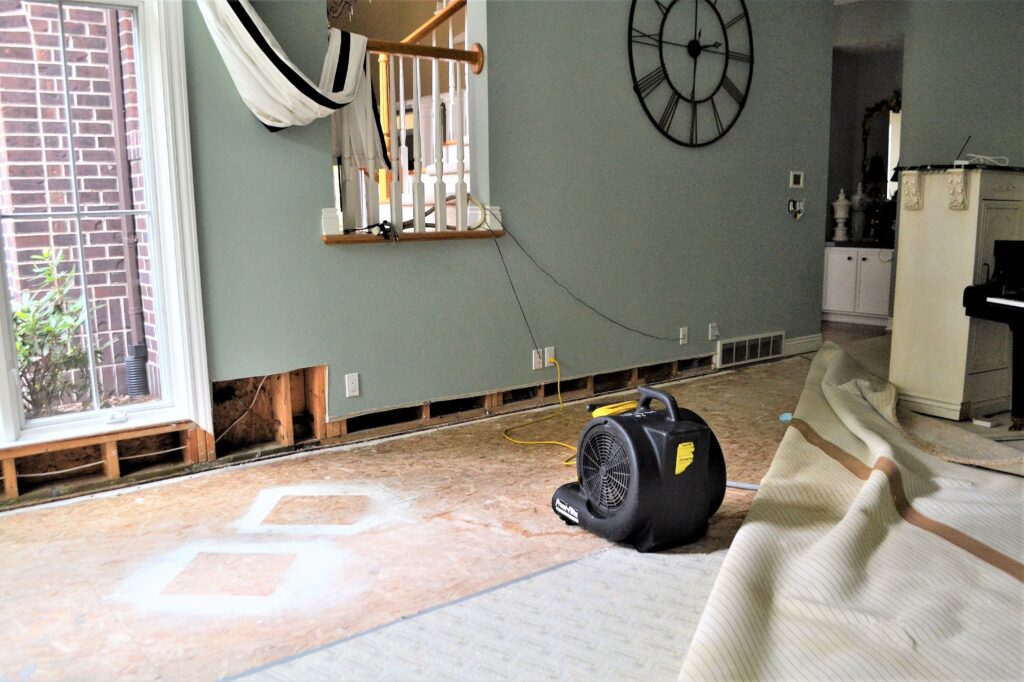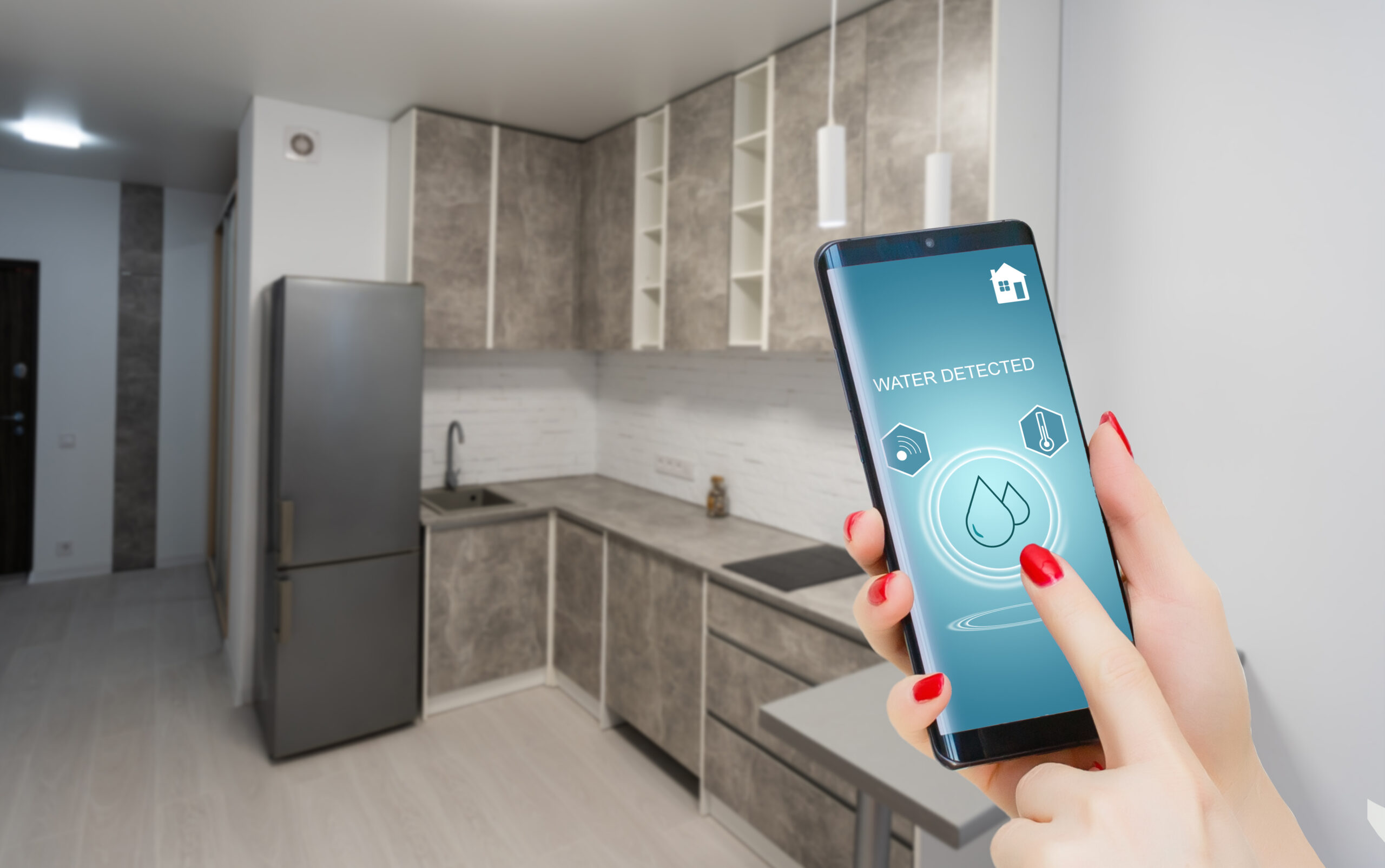Home insurance is one of the most costly policies for many individuals—especially in Florida. While the insurance market is still somewhat unpredictable—and rising premiums are seemingly a given—there are still ways you can keep your costs down without jeopardizing your coverage.
We’ve spoken about bundling your insurance policies to unlock savings and of course working with an independent insurance agency like Darr Schackow to help you shop for the best policies at the best prices. But there are more things you can do on your own as well, starting with installing a water sensor in your home.
When you have a home security system, it’s a deterrent for break-ins and many insurance carriers will reward you for that. A water sensor is a similar preventative measure you can take that carriers reward. Read on for more.

How Does a Water Sensor Work?
Just like your Ring camera alerts you when someone is at your front door, a water sensor will give you peace of mind that your home is being monitored when you’re not there.
Water sensors are designed to alert you if they sense a potential leak or flood in your home so you know before it’s too late. They can also be integrated with smart home systems and can be set to turn off the water supply if it detects a leak. Some models even monitor the humidity level to alert you about possible mold growth.
It is best to place your water sensor (or sensors) near sources of water in your home, such as the bathroom or near your HVAC and other appliances. There are several types of sensors that can all alert you as soon as they detect a leak so you can act quickly.
The best part is they are relatively inexpensive and require little to no installation—not to mention all the money they can save you by preventing minor leaks from becoming major ones.
What Water Damage Does Home Insurance Cover?
Not all water damage is equal in the eyes of insurance carriers.
Any water damage caused by flood waters will not be covered by your standard homeowners policy. While it may seem frustrating having to purchase a separate policy, keeping flood insurance separate from home insurance is actually mutually beneficial to both customers and carriers.
So what types of water damage are covered by your home insurance?
- Sudden or accidental discharge from a burst pipe or a malfunctioning appliance, like a washing machine or water heater.
- Weather-related water damage, such as a roof leak caused by a heavy storm.
- Overflow and discharge from sinks, bathtubs, toilets (excluding sewer backups), or other appliances.
- Water damage incurred during the process of putting out a fire in the home.
- Water damage caused by vandalism.
Things like gradual damage (a slow leak), sump pump failures, ground seepage, or any damage determined to be intentional or caused by negligence will not be covered, although some carriers will offer policy endorsements or riders to cover some of these instances.

How Costly Is Water Damage?
Even a small amount of water can be quite costly, and while you can’t plan for a burst pipe or leaking water heater, it’s important to be prepared with the right insurance and right precautions in place.
Repair costs will always depend on the amount of water present, how long it was left unattended, and the amount of objects damaged. Minor leaks that are caught quickly before damage spreads may cost just a few hundred dollars to repair, whereas a major burst that causes standing water or a major roof leak can cost thousands to repair.
The more major the damage, the more repairs required as well, not to mention checking for secondary damage, like mold growth or personal property damage.
The type of water (clean, gray, or black) also plays a big factor in the final cost. Clean water is that which hasn’t come into contact with a hazardous material (like waste) while black water has been contaminated, requiring advanced restoration services.
That’s why installing water sensors is such a win-win idea for both you and your insurance carrier. The sooner water leaks can be detected, the less likely they are to cause major damage.
How Your Water Sensor Can Save You Money On Your Home Insurance
Because installing a water sensor in your home is so simple, you might not think of all the ways it can benefit you (outside of just helping you prevent leaks).
Cars with more modern safety and anti-theft features sometimes have lower insurance rates and the same principle is tied to your home. Many homeowners don’t realize their insurance carrier may offer them a discount for installing water sensors.
If you’ve recently made this upgrade to your home, let your insurance agent or carrier know right away so they can make the proper adjustment to your policy.
Get the Best Home Insurance With Darr Schackow Insurance
Having the right insurance is all about balancing the amount you can spend on premiums each month with the amount of coverage you need. While it may currently seem like you’re stuck with the coverage and premium you’re given, that’s not always the case.
Working with an independent insurance agent can help you find the policies that truly fit your lifestyle and your budget and can even give you something of an insider’s view into insurance.
At Darr Schackow, we always put our clients first. Whether it’s working hard to find you the best policies or helping you lower costs by applying for the right discounts, we’ve got you covered.
Request a quote today and find the right home insurance for you.

